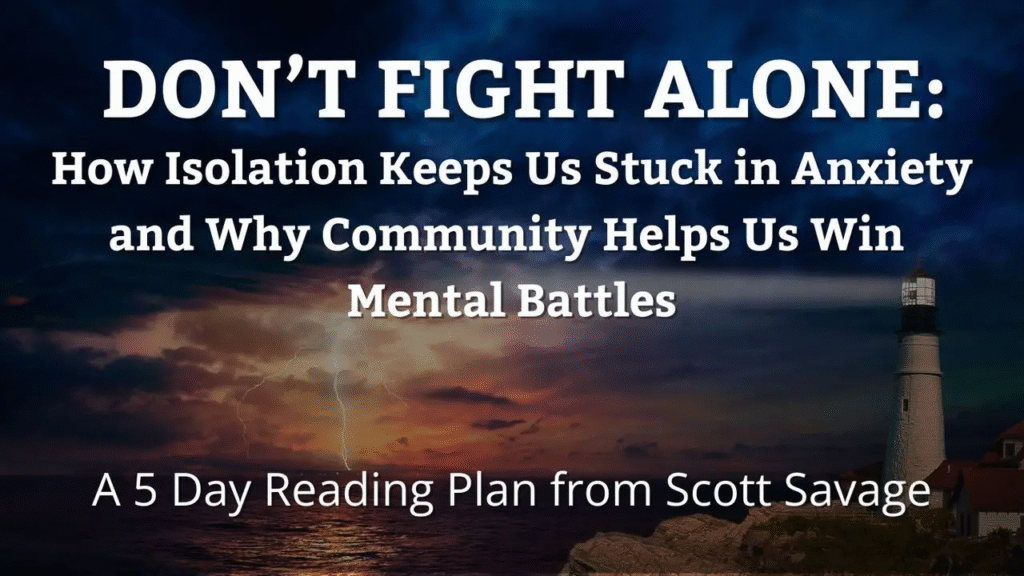
The secret to winning the battle in your mind isn’t fighting harder—it’s fighting together. This 5-day plan from Scott reveals why community is essential for mental transformation, how to overcome fears of vulnerability, and practical steps to build relationships that renew your mind.Scott Savage
Day 1
Scriptures: Romans 12:2, Proverbs 27:17
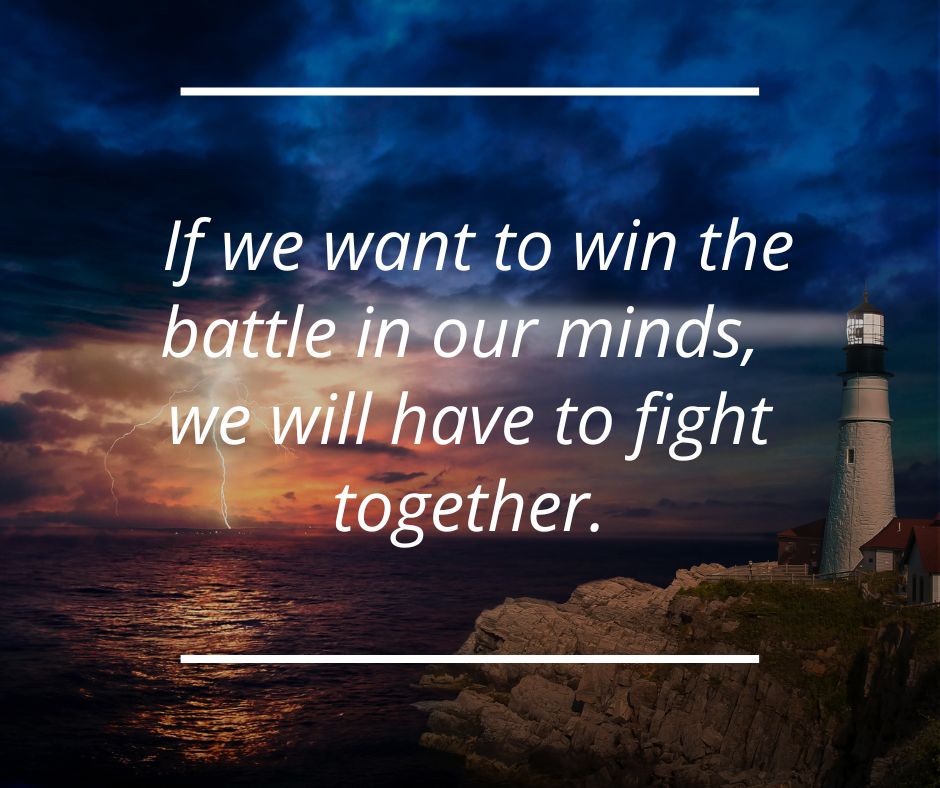
Have you ever seen the movie Cast Away starring Tom Hanks? It’s one of his best performances. In it, he plays a FedEx employee stranded on a remote island after his plane crashes.
In one of the film’s most emotional moments, Hanks loses “Wilson,” a volleyball with a painted face that became his only companion on the island. The scene is heartbreaking because it captures something deeply human: our desperate need for connection.
Many of us can relate to that loneliness. We understand what it’s like to have somebody we counted on suddenly gone. Maybe there was one person we were close to who moved away. Maybe there was someone we thought we could trust who hurt or betrayed us. Or perhaps there was someone we were leaning on, and they didn’t realize how much their words meant to us until they spoke words that hurt us deeply.
For many of us, the most challenging part of winning the battle in our minds is that we’re trying to do it alone. A few years ago, I surveyed my email subscribers, and over 60% of the people there indicated that their loneliness was at a seven or higher (on a scale of 1-10). That’s too high!
At one point, I was as isolated as Tom Hanks. While I wasn’t stranded on a remote island or talking to a volleyball, no one knew what I was going through inside. While people surrounded me and my calendar overflowed with activities, I felt lonely and discouraged.
Over a few years, I realized the danger of this approach to life. I made significant shifts and learned big lessons I’m excited to share with you in this plan.
The biggest lesson is the big idea of this plan: If we want to win the battle in our minds, we will have to fight together.
We tend to remove the word “together” and replace it with “alone.” We’ve been fighting the battle for many of us, but we’ve been fighting it by ourselves. And if we’re going to win it, we’re going to have to fight it together.
In Romans 12:2, Paul writes, “Don’t be conformed to this age, but be transformed by the renewing of your mind.” This is where the battle occurs—in our thoughts, perspectives, and internal dialogue. But interestingly, immediately after writing these words, Paul begins talking about community and how we function as one body with many parts.
That’s because Paul understood something crucial: We cannot win this battle alone. We need each other. As Proverbs 27 reminds us, we make each other better and stronger!
Like Tom Hanks’ character desperately clinging to Wilson, we all need connection. But unlike a painted volleyball, God has given us real people to fight alongside us.
Tomorrow, we’ll explore the fear that prevents us from stepping into community with others.
Day 2
Scriptures: Romans 12:3-5, 1 Peter 5:8-9
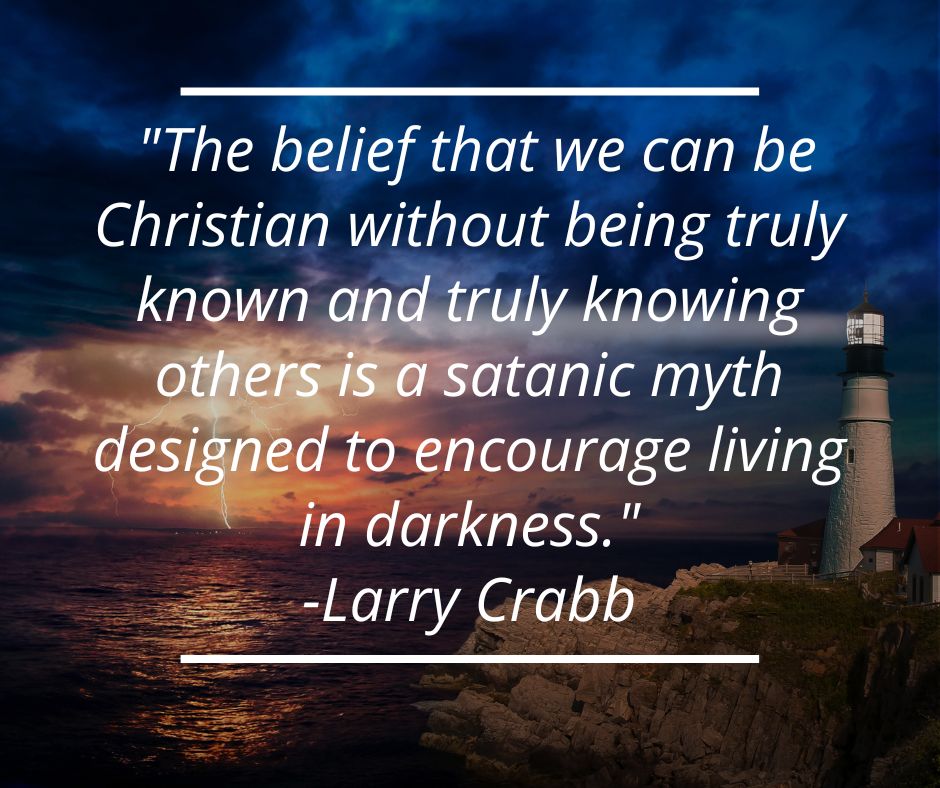
“I can know God without anyone knowing me.”
This statement captures the dangerous lie many of us have believed. It’s the idea that we can grow spiritually, overcome our mental battles, and become like Jesus while keeping others at arm’s length.
Larry Crabb, a Christian counselor, describes this problem perfectly: “The belief that we can be Christian without being truly known and truly knowing others is a satanic myth designed to encourage living in darkness.”
If you haven’t noticed, Western culture encourages rampant individualism. We love our rights, privileges, and freedoms. We don’t like anybody telling us what we can or cannot do.
However, this individualism is entirely incongruent with the biblical vision of community. It contradicts the picture of the body that Paul describes in Romans 12:3-5: “For by the grace given to me, I tell everyone among you not to think of himself more highly than he should think. Instead, think sensibly, as God has distributed a measure of faith to each one.”
If someone from the early church could time-travel to today, they might be more shocked by our individualistic approach to faith than by our technology. The idea of following Jesus alone would be incomprehensible to them!
This individualism is partly why so many of us feel isolated and lonely. In that survey I mentioned yesterday, 70% of respondents said they feel lonelier now than they did a year ago.
Many of us avoid intimacy. How many times do you gather with your church and avoid deep conversations? How many times, when people asked how you were doing, do you just say, “Oh, I’m busy. Things are great”?
There are countless reasons to avoid intimacy. We’re terrified of being known. We’re comfortable relating to God as an employer rather than a Father. We keep people at a distance because if somebody knew us, they would know enough to hurt us.
This approach makes sense. When you’ve shared something vulnerable, and people have used it to hurt you, you’re apprehensive about doing it again. Several years ago, I told a story during a sermon in which I was certainly far from heroic. The story explored my discovery of a bad habit when a friend pointed it out to me. The next day, I got a painful email from a church member who pointed out all the times they’d seen that habit, including how “gratified” they felt when someone else pointed out my failures. I felt broken and considered never sharing anything vulnerable during a message again.
What’s the problem with this path? By avoiding the risk of pain, we also prevent the very connection we need to become like Jesus.
Our spiritual enemy knows this. That’s why Satan, described as “a roaring lion seeking someone to devour” in 1 Peter 5:8, targets the isolated. If you’ve watched nature documentaries, you know lions hunt the weak and isolated members of the herd. When the herd stays together, it’s strong. But when individuals get separated, they become vulnerable.
If our enemy can keep us isolated, he can attack us and prevent us from becoming all Christ intended. The path to transformation via renewing our minds runs straight through an experience of community. There is no detour around it.
On the next day of this plan, we’ll examine the area where you need to focus to achieve victories.
Day 3
Scriptures: Colossians 3:1-4, Hebrews 3:13
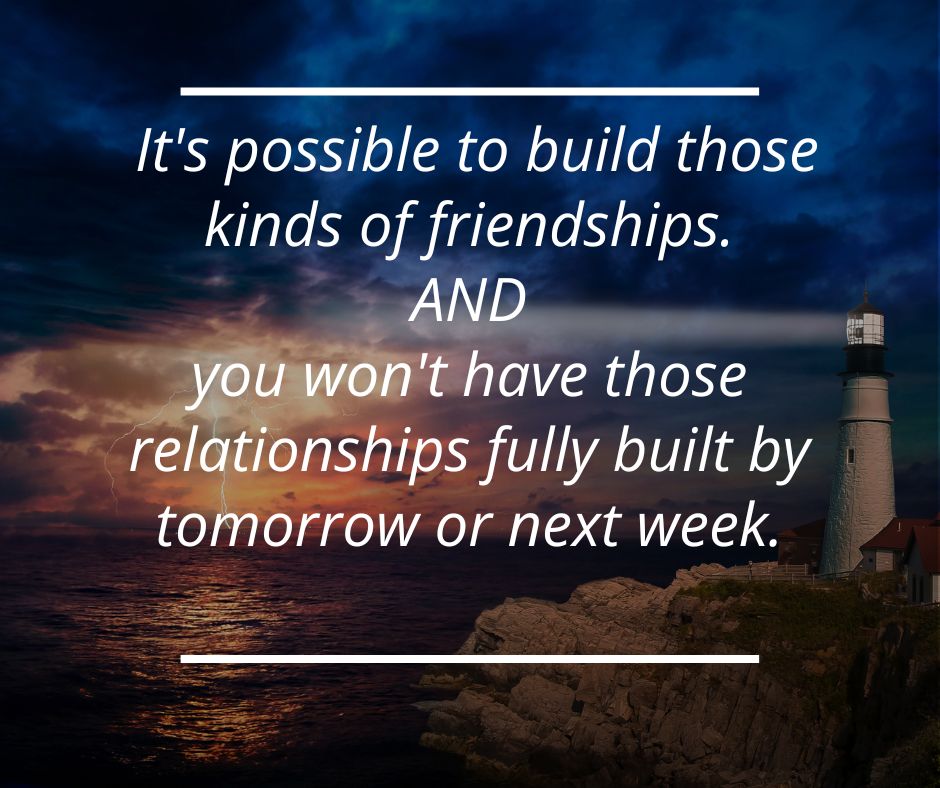
In order to develop a new mentality, we must constantly be reminded of our new identity. This reminder comes through the community around us.
When Paul writes in Colossians 3:1-2, “So if you have been raised with Christ, seek the things above, where Christ is, seated at the right hand of God. Set your minds on things above, not on earthly things,” he’s not writing to an individual. He’s writing to an entire church.
In our individualistic culture, we tend to read these verses as if Paul is speaking directly to me as an individual. But the “you” in these verses is plural. If I translated this with an accent that matched my family raised in America’s Deep South, it would read: “If y’all have been raised with Christ, seek the things above… Set y’all’s minds on things above.”
This practice of embracing our new identity and adopting our new mentality is something we do together.
I’ve learned in life that how we see the world reflects who we’re looking at it with. What we focus on is often a reflection of our friendships. How you perceive your circumstances largely depends on the voices you value most – the people you listen to closely, respect, and trust.
If you constantly focus on negative things, fearful scenarios, or hopeless situations, it might be time to evaluate whose voices are shaping your perspective.
Now, if you’re thinking, “I don’t have many deep relationships where people speak truth into my life,” I have good and hard news for you.
The good news: It’s possible to build those kinds of friendships.
The hard news: You won’t have those relationships fully built by tomorrow or next week.
Friendships don’t show up on our doorstep like packages on express delivery. Every valuable relationship is the result of intentional effort over time.
If you want your mental perspective to align with who you are in Christ, you must invest the time and energy to develop relationships where people can remind you of your true identity.
I can’t tell you how many times I’ve found myself beaten down, discouraged, and in places of despair. My mind was set on earthly things rather than things above. But in those moments, someone who knew me well would come alongside and say, “Scott, I know you, and this isn’t who you are. This attitude, mindset, perspective, and sense of defeat isn’t who you are in Christ.”
In those moments, they lifted my gaze from down here to up there. They embodied the Holy Spirit, helping me win the battle in my mind.
We all need people who will remind us of who we are in Christ when we forget, who will speak truth when we believe lies, and who will point us to our new identity when we revert to old patterns of thinking.
Tomorrow, we’ll explore the essential battle tactic you won’t be able to execute alone!
Day 4
Scriptures: Philippians 1:12-14, Philippians 1:18-21, Hebrews 10:24-25
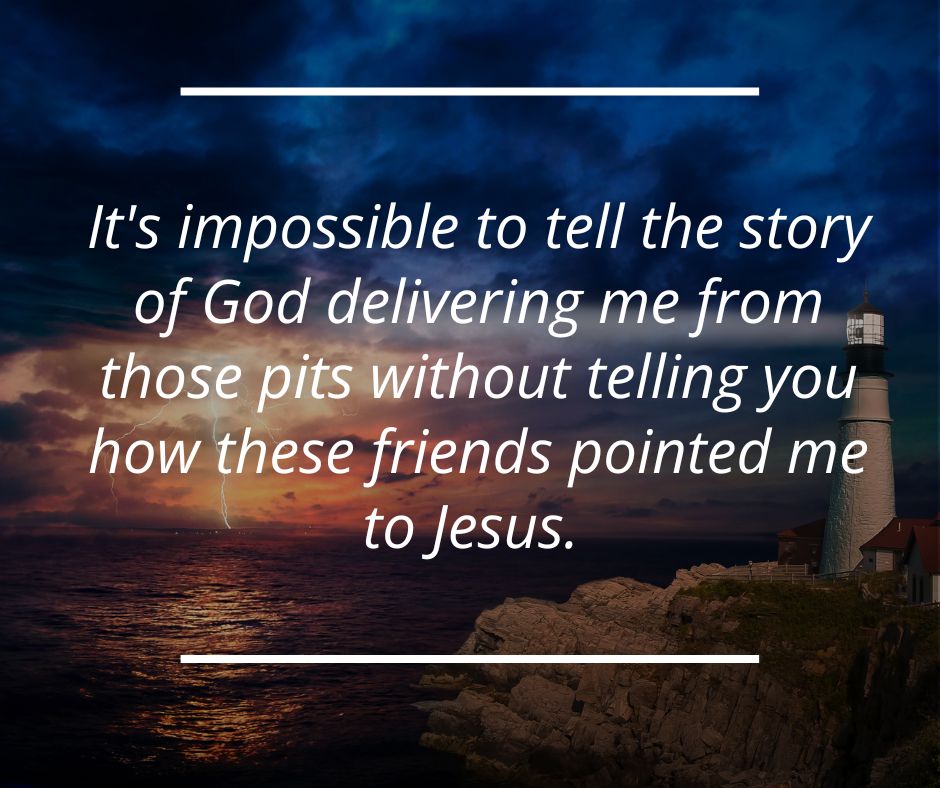
When things go badly, we need others to reframe our perspectives.
In Philippians 1, Paul writes from prison – a place most would consider the epitome of “things going badly.” Yet he says: “Now I want you to know, brothers and sisters, that what has happened to me has actually advanced the gospel, so that it has become known throughout the whole imperial guard and to everyone else that my imprisonment is because I am in Christ.”
From a dark prison cell, Paul sees purpose. He sees the advancement of the gospel. He sees opportunity rather than an obstacle.
Paul’s perspective isn’t defined by where he is but by who he is set on. His circumstances haven’t changed, but his view of those circumstances has transformed.
What’s your view like from inside the pit?
Beth Moore once said there are three kinds of pits: the pits we jump into, the pits we fall into, and the pits we’re pushed into. Some of us ended up in dark places because of our choices. Others fell in through no fault of our own. And some were pushed in by circumstances or other people.
Regardless of how we got there, we don’t need someone practicing mere sympathy when we’re in a pit. Job’s friends stood above him in his pit of suffering and offered sympathy: “I feel bad for you as I look down.” They explained how he got there, which wasn’t helpful.
What’s helpful is empathy – someone who loves you enough to jump into the pit with you. When you fix your mind on earthly things rather than things above and destructive thoughts defeat you, you don’t need someone to analyze your situation from a safe distance. You need someone willing to sit in the darkness with you.
Ideally, you need someone who will point you to Jesus rather than to their strength or your failures.
I’ve found myself in various pits throughout my life, such as self-pity, despair, and discouragement. My wife called the first few years of our marriage my “angry phase.” Because I fixated on everything wrong around me, I was full of anger, cynicism, and unforgiveness. Needless to say, I was not fun to be around!
Looking back at that time, I think about the friends who jumped in with me. They didn’t explain everything away or cast themselves as the heroes of my story. They walked alongside me and pointed me to the One who could deliver me. I don’t know where I’d be without people: Ann, Maxie, Karyn, and Jason.
It’s impossible to tell the story of God delivering me from those pits without telling you how these friends pointed me to Jesus. They lifted my eyes from earthly things and helped me set them on things above. Because of them and God’s grace working through them, I wasn’t conformed to this world but transformed by the renewing of my mind.
If you’re in a pit right now, you need people who will reframe your perspective—not by denying reality but by helping you see God’s presence, purpose, and power in your circumstances.
And if you know someone in a pit, be the kind of friend who jumps in and points to Jesus.
On the final day of this plan, I’ll share three practical steps you can take to fight together and win the battle in your mind.
Day 5
Scriptures: Galatians 6:2, James 5:16, Ecclesiastes 4:9-12
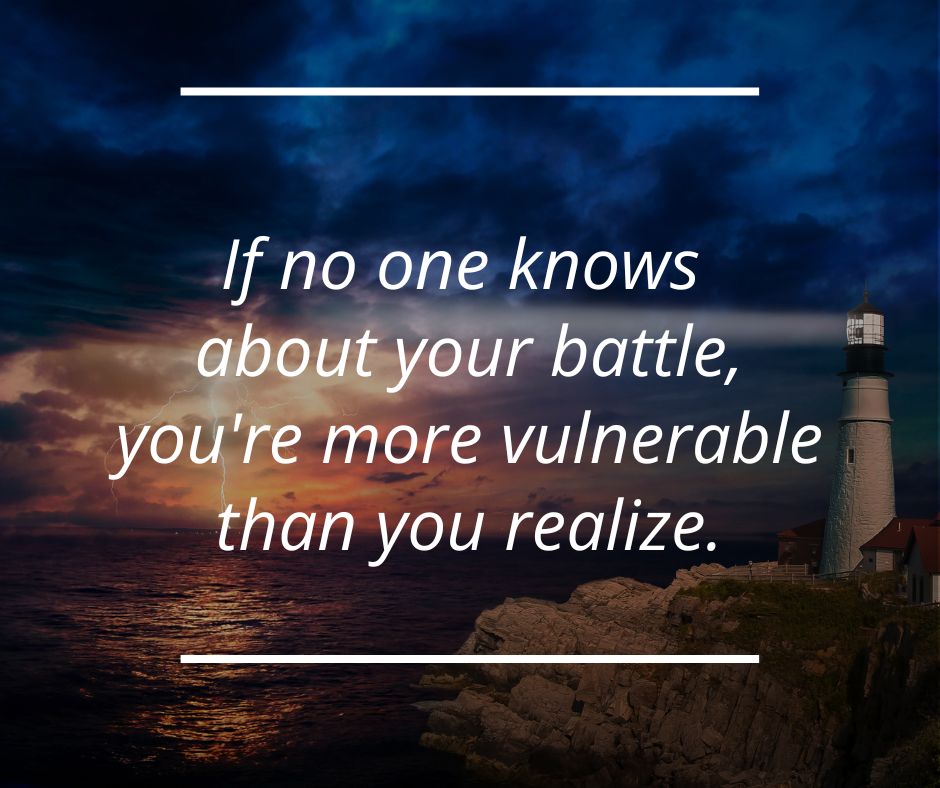
If we’re going to win the battle in our minds, we must fight together. But how do we do this practically? Let me give you three specific next steps.
First, identify someone you’ll ask for help from today, or reach out to someone and “jump into their pit” with them.
One mark of growing in Christ-likeness is minimizing the gap between being convicted by the Holy Spirit to do something and acting on it. If God is moving in your heart today, leading you to confess “I am isolated, I am lonely, I need people, I am struggling,” identify somebody you will reach out to today.
You might not be able to have the conversation today, but you could make a phone call, email, or text and say, “Hey, I want to get together this week. Can we schedule some time?”
If you know someone who is isolated or lonely, reach out and say, “I’m here for you. I don’t have all the answers, but I want to be in it with you.”
Second, share the true nature of the battle to renew your mind.
Others can’t pray with specificity or encourage with empathy when fighting a battle they don’t know about. This transparency might be especially challenging for men, as research shows women reach out during crises more quickly than men. But men need deep connections too.
For introverts, this process might look different. You may not need as many people, and intentional investments may be more taxing. But you still need those relationships.
If no one knows about your battle, you’re more vulnerable than you realize. James 5 demonstrates the power of community, stating that healing comes from confessing our sins to each other.
Third, say the last two percent.
In many relationships, there’s the 98 percent we feel free to share, and then there’s the 2 percent we hold back. That 2 percent typically includes what we’re afraid to say or worried about how people will respond.
But that last 2 percent is usually the good stuff—where real intimacy begins. If we want genuine friendships that help us win the battles in our minds, we need to share the easy 98 percent and the difficult 2 percent.
These steps might feel terrifying if you’re still carrying relational wounds. You might need professional help to process those wounds. Take it one piece at a time—you don’t need to bear your entire soul immediately.
The battle in your mind is too important to fight alone. God designed us for community because He knew we would need each other for sustained transformation.
Let me close with this encouragement from Ecclesiastes 4:9-12: “Two are better than one because they have a good reward for their efforts. For if either falls, his companion can lift him up; but pity the one who falls without another to lift him up.”